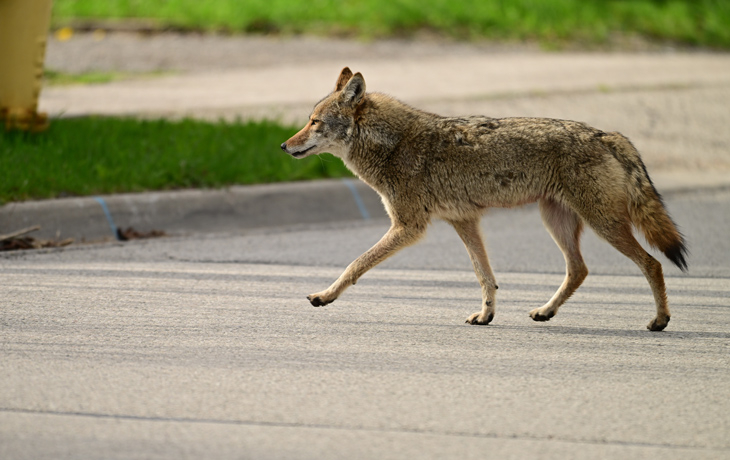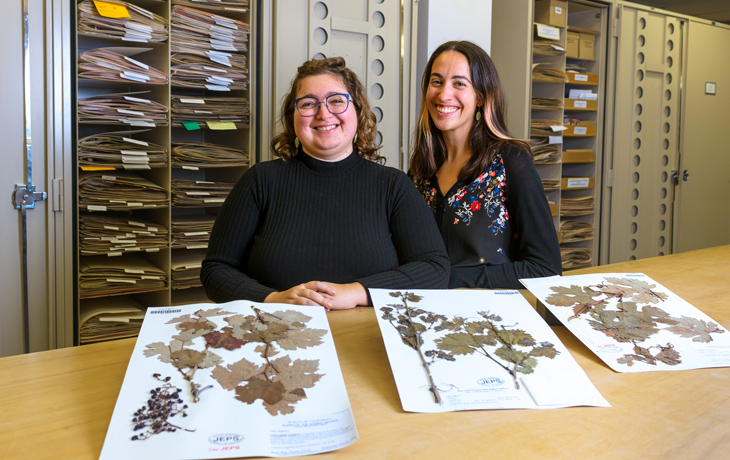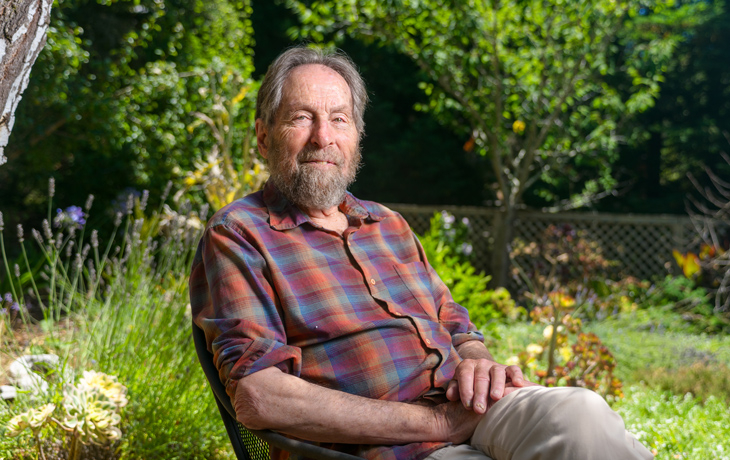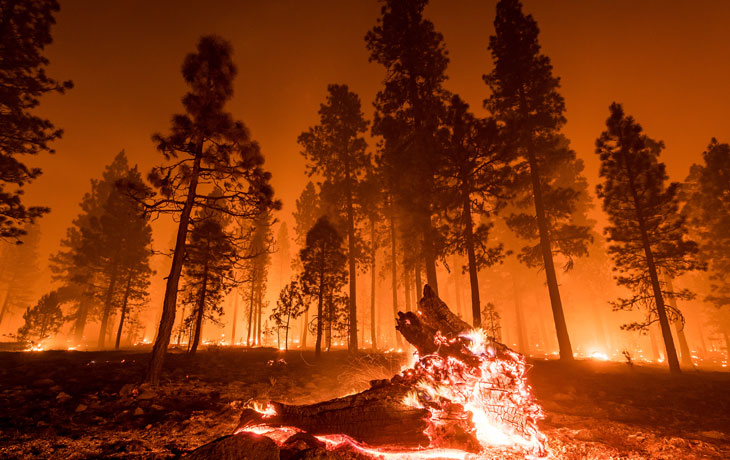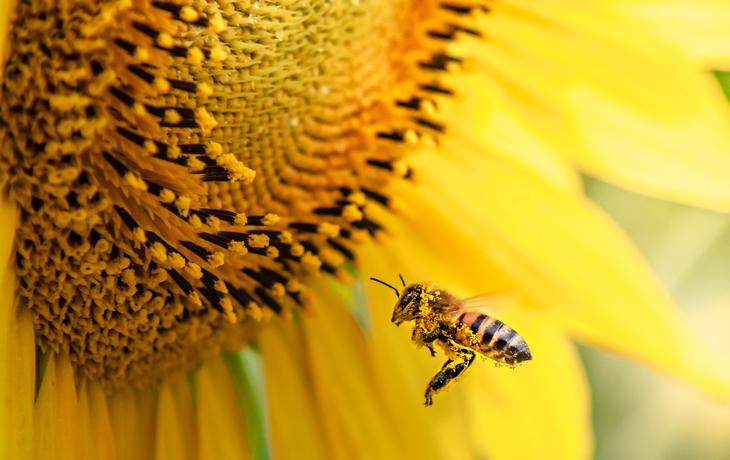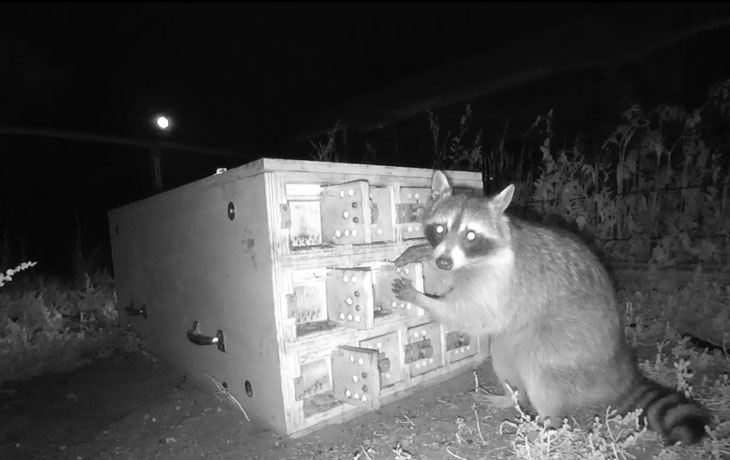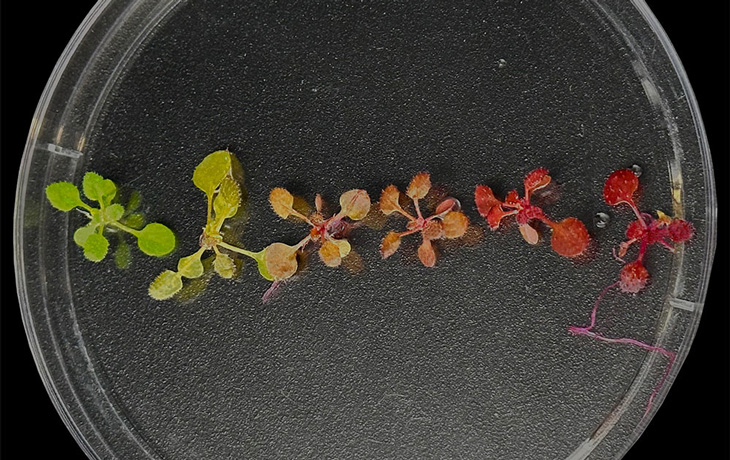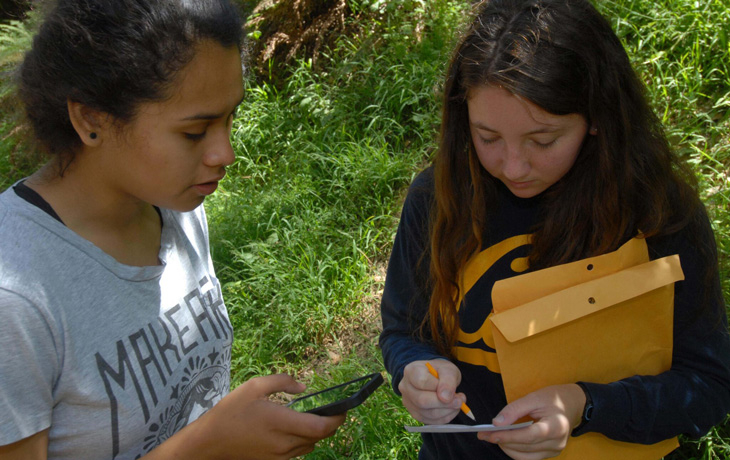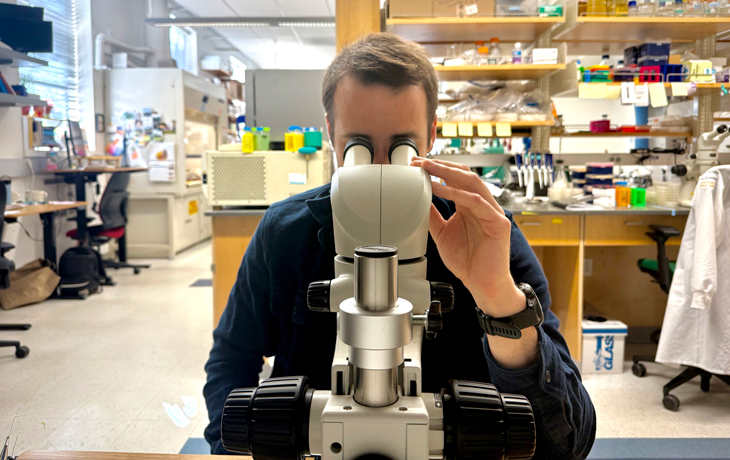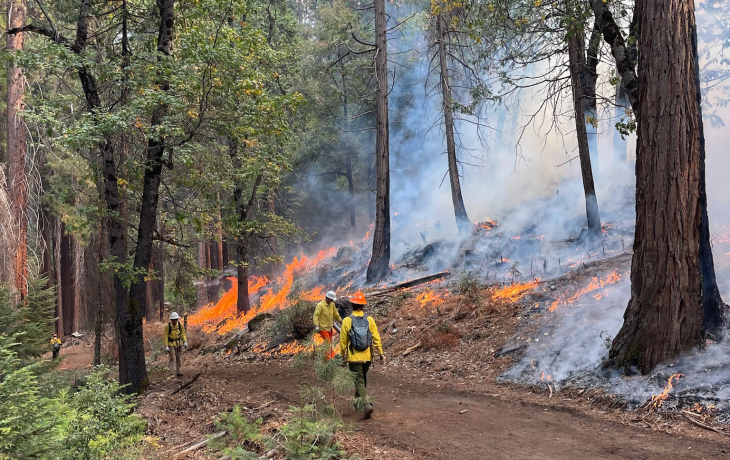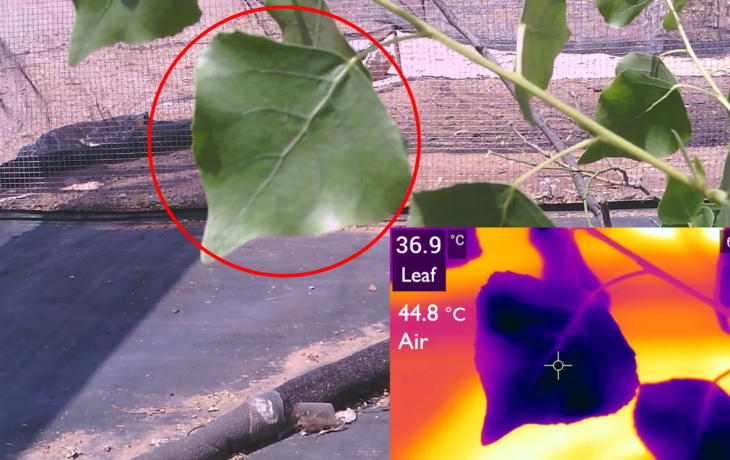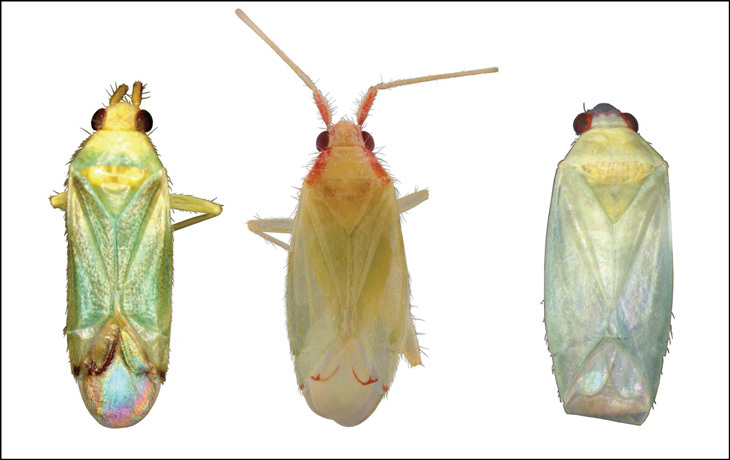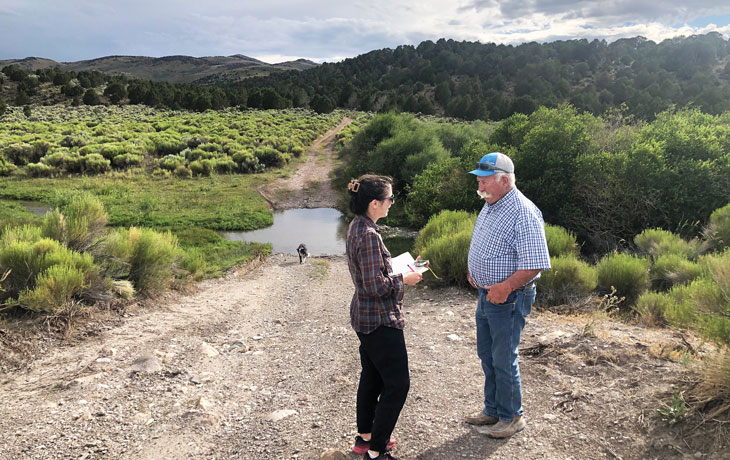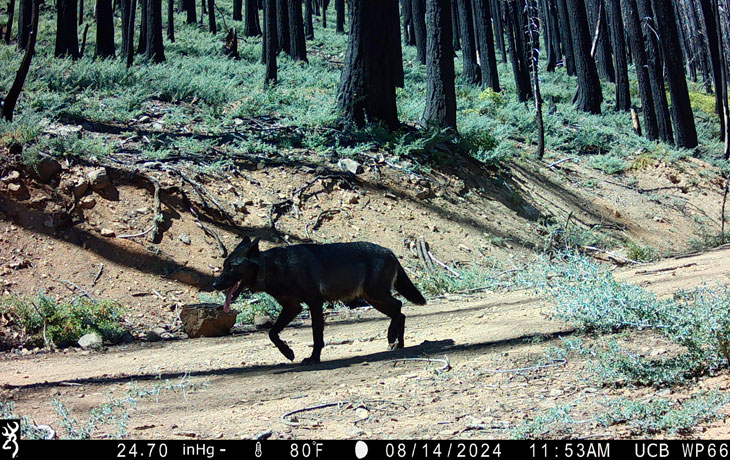Stephanie Pau, a professor of Environmental Science, Policy, and Management and Geography, explains the science behind biogeography in 101 seconds.
Study highlights crucial role of wildlife in human and ecosystem health and well-being
An international team of researchers asserts that inadequate recognition of wildlife's benefits to humans can hinder global conservation efforts and policies.
Study: Habitat protections boost home values in surrounding communities
Home prices within areas protected by the Endangered Species Act are barely changing, while prices in surrounding communities have increased by as much as 10 percent.
Dense human population is linked to longer urban coyote survival
A new study co-authored by Environmental Science, Policy, and Management professor Christopher Schell suggests that the human element of city life has a bigger impact than the environment on coyote survival.
What a century-old grapevine reveals about a disease plaguing wine country
UC Berkeley researchers used bacterial DNA from a 120-year-old herbarium specimen to reconstruct the history of Pierce’s disease in California.
Hybrid theory offers new way to model disturbed complex systems
ERG professor John Harte and collaborators have developed a hybrid method that that links bottom-up behaviors and top-down causation in a single theory.
Open-source platform empowers communities to tackle wildfire crisis
A collaborative tool developed with the help of UC scientists empowers local governments and organizations to take control of their wildfire preparedness.
Can ecotourism help promote and celebrate cultural diversity and biodiversity?
Professor Alejandra Echeverri and colleagues show that while Colombia is protecting biodiversity and cultural diversity, both remain mostly inaccessible to tourists.
How sunflowers bring all the bees to the yard
Professor Benjamin Blackman's collaborative research project on sunflowers was featured in a PBS video about how they are able to predict where and when the sun will travel each day.
The problem-solving abilities of urban raccoons
Professor Christopher Schell and postdoctoral researcher Lauren Stanton were interviewed about their research on the cognitive abilities of raccoons by ABC7 News.
Plant engineering breakthrough could improve bioproduct development
Research led by PMB professor Patrick Shih shows that some simple changes to Agrobacterium can significantly improve the efficiency of introducing DNA into a genome.
Working toward a world without plastic pollution
A new study co-authored by Rausser College researchers finds that nearly ending plastic pollution by 2050 is possible, but requires an ambitious and coordinated global effort.
Powering Health in Africa
UC Berkeley research is electrifying clinics and hospitals that provide reliable power, Wi-Fi, and water to surrounding communities.
New form of Sudden Oak Death found in Bay Area
Citizen scientists from the SOD Blitz Project, led by Cooperative Extension professor Matteo Garbelotto, have discovered at least four outbreaks of a new, potentially more aggressive form of the pathogen that causes sudden oak death.
Cancer cells opt for faster, less efficient energy creation
A new study led by UC Berkeley researchers identifies why cancer and other fast-growing cells choose a less efficient way to produce energy.
Prescribed burn was first at Whitaker’s Forest in half a century
Berkeley Forests researchers conducted a controlled burn at Whitaker’s Forest last month as part of their ongoing investigation into how to protect giant sequoia trees from wildfire and other threats.
Intensive leaf cooling promotes tree survival during a record heatwave
A new paper out from the Blonder lab focuses on how water access affects leaf function and survival in the Fremont cottonwood during extreme heatwaves.
New plant bug species discovered in French Polynesia
ESPM PhD alum Brad Balukjian spoke to Rausser College about the discovery of 17 new insect species in French Polynesia, and how he hopes to continue educational outreach on the islands.
Renewable Repercussions
Meg Mills-Novoa’s research helps Nevada’s rural communities and Indigenous groups navigate a boom of renewable energy production.
California Wolf Project will advance science and management of gray wolves
The Berkeley Wildlife program and the California Department of Fish and Wildlife have launched the collaborative research initiative to understand the ecology and wolf-human interactions of the recolonizing wolf population in California.





